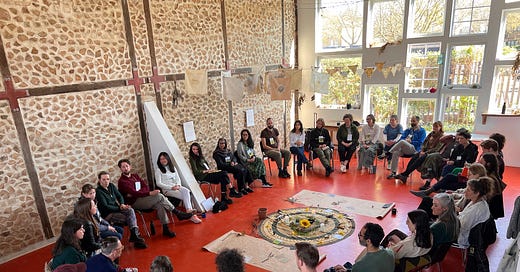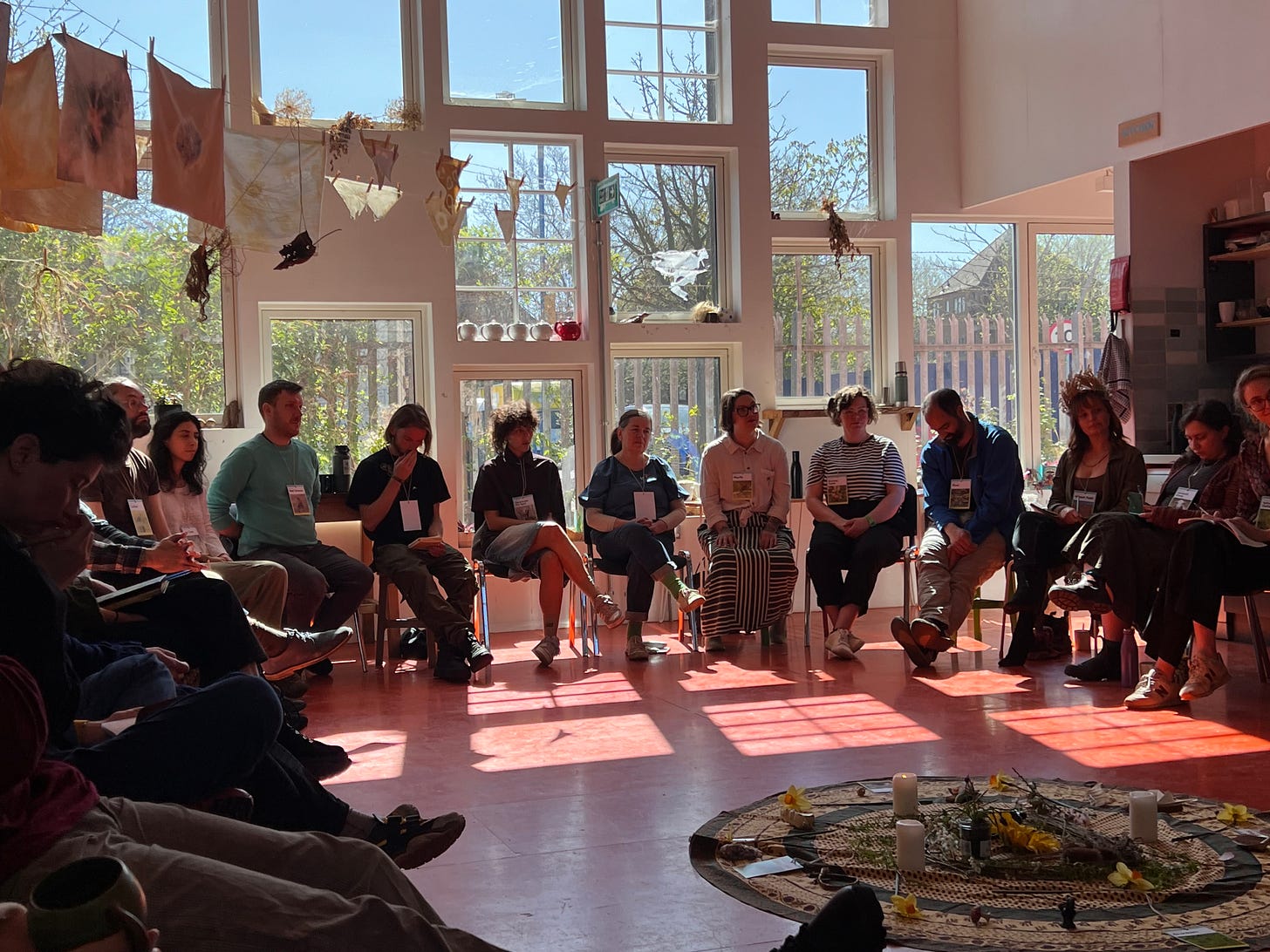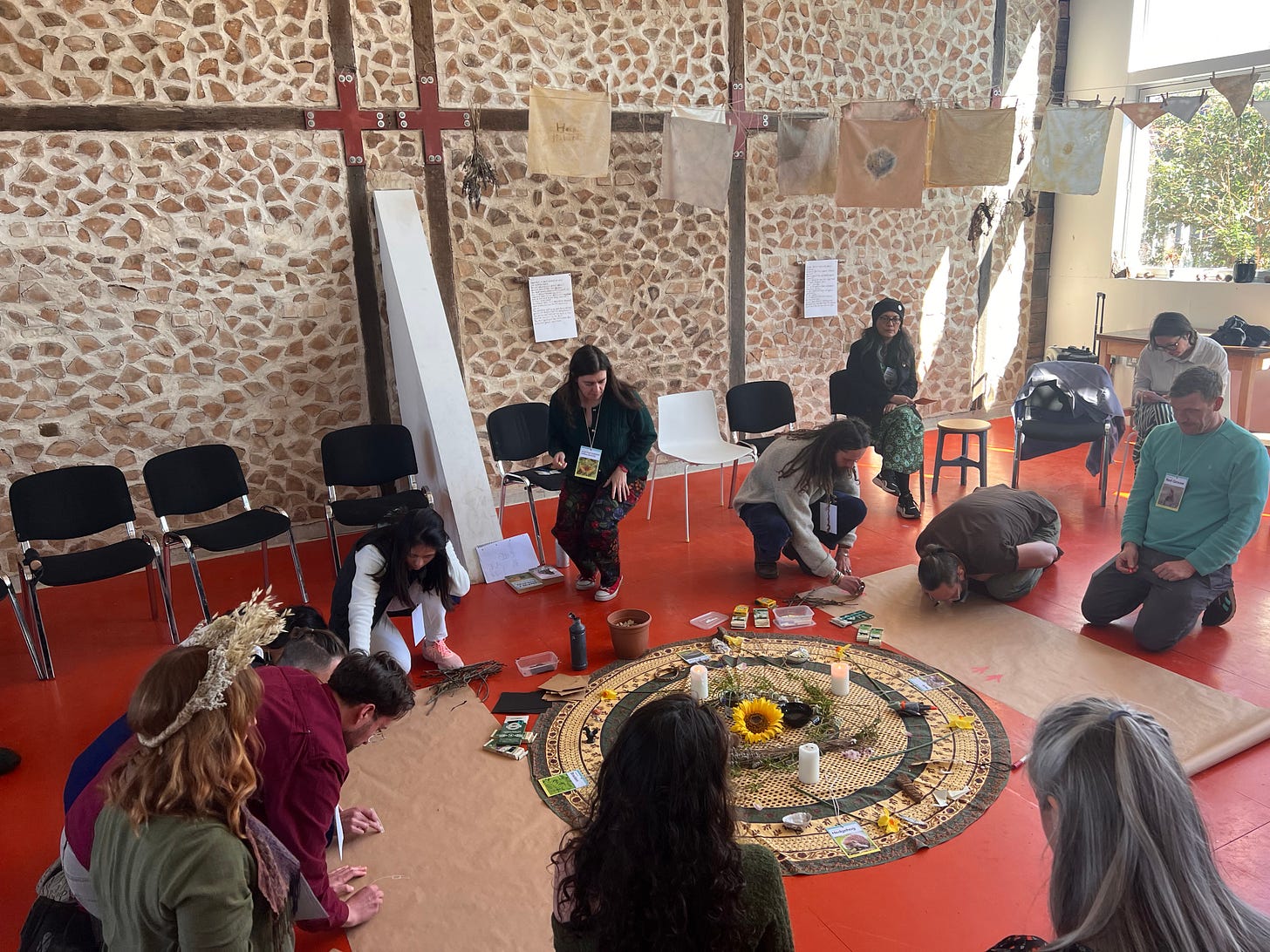What if non-human species and beings had a say in how land is used and managed in England?
Notes from the field: our project developing a more-than-human response to Defra's Land Use Consultation through the Interspecies Council practice. In collaboration with Feedback and wyrd futures.
A few weeks ago, Moral Imaginations hosted an Interspecies Council* with a specific aim: to craft a more-than-human response to the UK government’s draft Land Use Framework. Together with collaborators Feedback and wyrd futures, they gathered a group of participants across England’s land, food and systems change sectors to take them through a process of shedding their human identities and adopting a more-than-human identity to collectively imagine, deliberate and formulate responses to the framework.
Over 30 species gathered in council to share about their dreams and concerns around present and future land use in England, prompted by the release of this draft framework; a national plan that outlines how land should be managed to meet multiple goals at once, such as restoring biodiversity, reaching net zero emissions, producing food, building homes and infrastructure, and supporting public health and wellbeing.
Why the Interspecies Council?
We wanted to explore the perspectives of other species in relation to land use and nature recovery, to shape a collective response to the consultation, and to demonstrate the necessity of more-than-human governance and participatory tools in decision-making to benefit all of England’s species and ecosystems. Defra (the Department for Environment, Food and Rural Affairs) is calling for a response to their framework from its stakeholders… but they are not including the 70,000 species and beings that make up England’s biodiverse community. So far, they have only looked to human perspectives in this call for responses.
We had a wide range of beings and species present, chosen by an ecologist to represent a wide range across England: from the Mayfly that only lives one day to the River on which it depends which has been flowing since ancient times. Some domesticated species acknowledged their co-dependence and appreciation for humans, such as the Bramley Apple Tree and Wheatfield, while the Chicken, Pig and Cow wanted to be able to play freely and not be seen as ‘livestock’ or mere resources for human consumption.
We noticed strong currents of interspecies solidarity: Bluebell, Hawthorn and Barn Owl wanted their magic and mystery to be revered like it used to be. Glowworm, Beetle and Bat expressed their needs to protect the dark. Lichen, deer, curlew and butterfly shared worries in regard to their population decline or collapse.
Many beings expressed confusion and frustration at the disrespectful and destructive behaviours and impacts of human activity. Many voices also talked about the capacity of regeneration (the Soil), revitalising traditions (the Swift), remembering the co-evolution of all life (the Fungi and Moss), calling in abundance and appreciating diversity (the Red Grouse).
The group spent the afternoon working through specific questions related to the Land Use Consultation, which will be collated into a formal response to Defra’s consultation. Over the next few weeks, our team will be finalising the response to Defra’s consultation, drawing on the collective intelligence of the more-than-human perspectives that were expressed during the day.
The practice of the Interspecies Council bridges a transformative shift in perception in participants with a real-world application in being involved in a participatory governance process. Many of the participants reported feeling deeply moved, others talked about how it left them feeling a sense of interconnectedness with nature and the more-than-human world, and a strengthened desire to act on behalf of it.
In a time when traditional responses to the climate crisis seem to have failed, Moral Imaginations and partners are exploring approaches that tackle the deeper drivers of the climate crisis: worldview, mindset, values and imaginations.
Looking forward to sharing more as the weeks unfold about this experiment in more-than-human governance!
*The Interspecies Council is a methodology created as part of the Moral Imaginations body of work to introduce more-than-human ontologies and perspectives into decision-making and policy-making. The aim of the Interspecies Council is to bring the voice of nature and non-human beings into organisational decision-making, governance mechanisms and policy development, bringing awareness and respect to the Life and sentience of our natural world; highlighting their very real presence in issues that directly concern them. Find out more on Moral Imaginations website: https://www.moralimaginations.com/interspecies-council









This is wonderful - so creative, relevant, and integrated. Thank you for sharing your process! Please share updates from defra if/when they come!